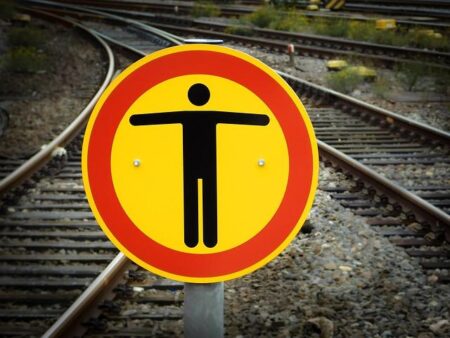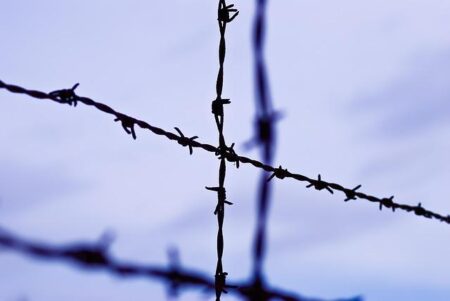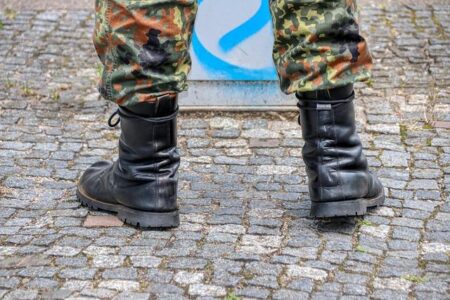Stellantis-backed ACC has abruptly abandoned its plans to build gigafactories in Italy and Germany, union sources reveal. This surprising decision throws the future of European battery production into doubt amid fierce industry competition
Browsing: Germany
Germany’s Nazi regime, driven by Adolf Hitler’s ruthless ambition, sparked the outbreak of World War II and unleashed the devastating horrors of the Holocaust, bringing unparalleled destruction and unimaginable suffering. Britannica provides a compelling and detailed exploration of this dark chapter in history, spotlighting key events and offering profound insights
Switzerland, alongside France, the UK, Spain, Germany, and Denmark, triggered a dramatic plunge in tourist arrivals to California last year-setting a new record for the steepest decline and deepening the US tourism slump
Russia has just expelled a German diplomat, accusing Berlin of stirring up a frenzy of “spy mania.” This striking action intensifies the growing divide between the two countries, ramping up diplomatic tensions to new heights, Reuters reports
More than 200 attacks on refugees shook Germany in the fourth quarter alone, official data reveals. These disturbing figures highlight the ongoing struggle to safeguard and successfully integrate asylum seekers into our communities
Germany’s Friedrich Merz is preparing for a crucial visit to Washington this March, reports Die Welt. This trip aims to strengthen transatlantic ties in the face of rising geopolitical challenges. Stay tuned for updates on the agenda as they develop
Germany’s competition authority has taken bold action to curb Amazon’s price control tactics, striving to challenge the e-commerce titan’s dominance and protect smaller retailers, Euractiv reports
German Chancellor Friedrich Merz sets off on a crucial mission to the Gulf, determined to strengthen economic bonds as Germany expands its trade reach beyond Europe. This visit underscores Berlin’s ambitious push to enhance cooperation in the energy and technology arenas
Germany is turbocharging its partnership with Australia to lock in essential raw materials that are key to driving the future of green technologies. This dynamic collaboration highlights a strengthening alliance as both countries tackle the challenges of an ever-shifting global supply chain together
Germany is home to an astonishing 20,000 castles, ranging from towering medieval fortresses to enchanting fairy-tale palaces. These breathtaking landmarks offer a fascinating glimpse into the country’s rich history and remarkable architectural variety
Dining out in Germany opens the door to a rich tapestry of local traditions. From the art of tipping to proper table manners, knowing these key do’s and don’ts ensures your dining experience is smooth and respectful. DW brings you essential tips to confidently enjoy German restaurants like a true local
France’s vital gas pipeline linking to Germany will operate below capacity until mid-2026 due to essential maintenance and upgrades, impacting energy supply and cross-border gas flow, reports Pipeline Technology Journal
A man who fatally attacked a girl on a metro train in Brussels had entered Germany through a UN humanitarian program, reports Brussels Signal. Authorities are now digging deeper into his background and the details surrounding this tragic incident
German start-up SubscriptionCancel is transforming how millions say goodbye to their subscriptions, offering a seamless, user-friendly platform that simplifies service management and frees up precious time for users worldwide
Germany’s Bundeswehr is preparing for a significant boost in military spending, set to enhance defense capabilities in response to escalating geopolitical tensions. This move signals a bold and transformative shift in Berlin’s defense strategy
Germany’s Bundestag member Michael Wadephul recently traveled to New Zealand to ignite a stronger bond between the two nations. His visit focused on boosting trade, accelerating climate action, and championing digital innovation-all aimed at forging a vibrant and lasting partnership
Germany’s manufacturing sector is making a strong comeback, with the latest PMI soaring past the vital 50 mark-signaling exciting growth ahead. Despite ongoing global supply challenges, analysts remain cautiously hopeful about what the future holds
Germany’s F126 and MEKO frigate projects are facing delays as ongoing budget reviews and intricate technical challenges come to the forefront. The Ministry of Defense is diligently reassessing timelines to ensure these vessels deliver enhanced capabilities while optimizing cost efficiency
EXCLUSIVE: Germany is poised to cut funding for its pandemic hub by 50%, marking a significant global retreat from crucial health initiatives. This move raises urgent concerns about our preparedness for both present and future health threats
A German lawmaker praised President Barzani for his pivotal role in restoring stability to Western Kurdistan, highlighting his unwavering commitment to boosting security and promoting political unity across the region, Kurdistan24.net reports




















